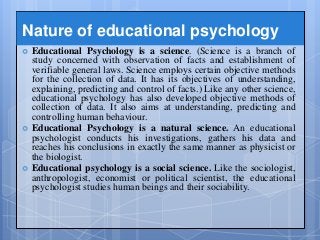What is an educational psychologist? They are professionals who perform psycho-educational assessments and other diagnostic tests. They may also perform psychological counseling in educational communities or for community members. The work of an educational psychologist varies widely. The job description and education requirements vary widely as well. For more information, read on! Here are some of the most common jobs of an educational psychologist. Read on to learn more about their duties and responsibilities. Once you have a good understanding of what an educational psychologist does, you can start planning your career as an educational psychologist.
Job description
A school psychologist is a professional who provides psychological services in schools, particularly to children and young people. The job responsibilities of an educational psychologist are varied and include providing counselling to pupils and their families, developing educational and behavioural management programmes, and attending conferences and workshops. An educational psychologist may also work outside the standard office hours, and their working conditions can be unpredictable. Read on for an educational psychologist job description and how to become one. The following are some of the most common responsibilities of an educational psychologist.
An Educational Psychologist is a professional with broad experience who is concerned with the development of children. This role entails evaluating and analyzing data to come to decisions and make recommendations about teaching strategies and programs. Because educational psychologists typically work in schools, their job descriptions are varied. Some educational psychologists focus on particular areas, including child development, behavioral assessment, and assessment. In general, however, an educational psychologist can work in many different settings.
Education requirements
The minimum education requirements for an educational psychologist include a master’s degree in psychology or school psychology, and at least three years of supervised professional experience working in public schools. The experience may be supervised or unsupervised, but must have occurred within six years of the application. Unlike a clinical psychologist, who has no supervision during the course of their practice, educational psychologists are required to have a significant amount of supervised experience.
Most educational psychologists work in public schools, although they may also be qualified to work in other settings. An educational psychologist may specialize in research or in school settings and may also be employed as a college professor. Other opportunities include consulting for governmental agencies or social services. After completing a doctoral degree, educational psychologists can enter research or consulting careers. As an educational psychologist, you may also choose to continue your education by obtaining a master’s degree in psychology or social work.
Career options
There are many careers that you can pursue as an educational psychologist. If you’re an expert communicator, enjoy collaborating with others, and have strong critical thinking skills, this could be the career for you. You can also teach undergraduates or graduate students and conduct research on college campuses, developing new educational strategies. Depending on the type of educational psychology position you’re seeking, you can make up to $80k per year.
After you complete an educational psychology program, you can choose to become an educational researcher, educational psychologist, or college counselor. If you’re considering a career in education, you should consider pursuing an advanced degree, as it generally requires two years of study. A Ph.D. is typically required to enter the field, and you’ll also have to undergo continuing education through workshops, conferences, and reading materials. For licensing requirements, visit the Association of State and Provincial Psychology Boards, which lists requirements for each state. While most states have similar requirements, some may accept professional board certification.
Work experience
As an educational psychologist, you will work with children and young people, from 0 to 19 years old, to identify educational needs, behavioural problems, and emotional issues. These professionals have extensive training in child development, the psychology of learning, and social and emotional wellbeing. These professionals may also have a background in counseling or group dynamics. Moreover, they may have worked in research and educational research settings. Depending on your interest, you may work in an educational research institution, school, or college.
To become an educational psychologist, you must complete at least 1,200 hours of internship. You will normally complete this requirement during your master’s degree or doctorate degree program. The internships help you gain valuable work experience in an educational setting. Educational psychologists must pass a state-mandated examination that comprises multiple-choice questions. After completing the training, you will have to take a series of four examinations. In addition to the qualifying exams, you will have to complete a number of clinical hours to become a professional educational psychologist.

